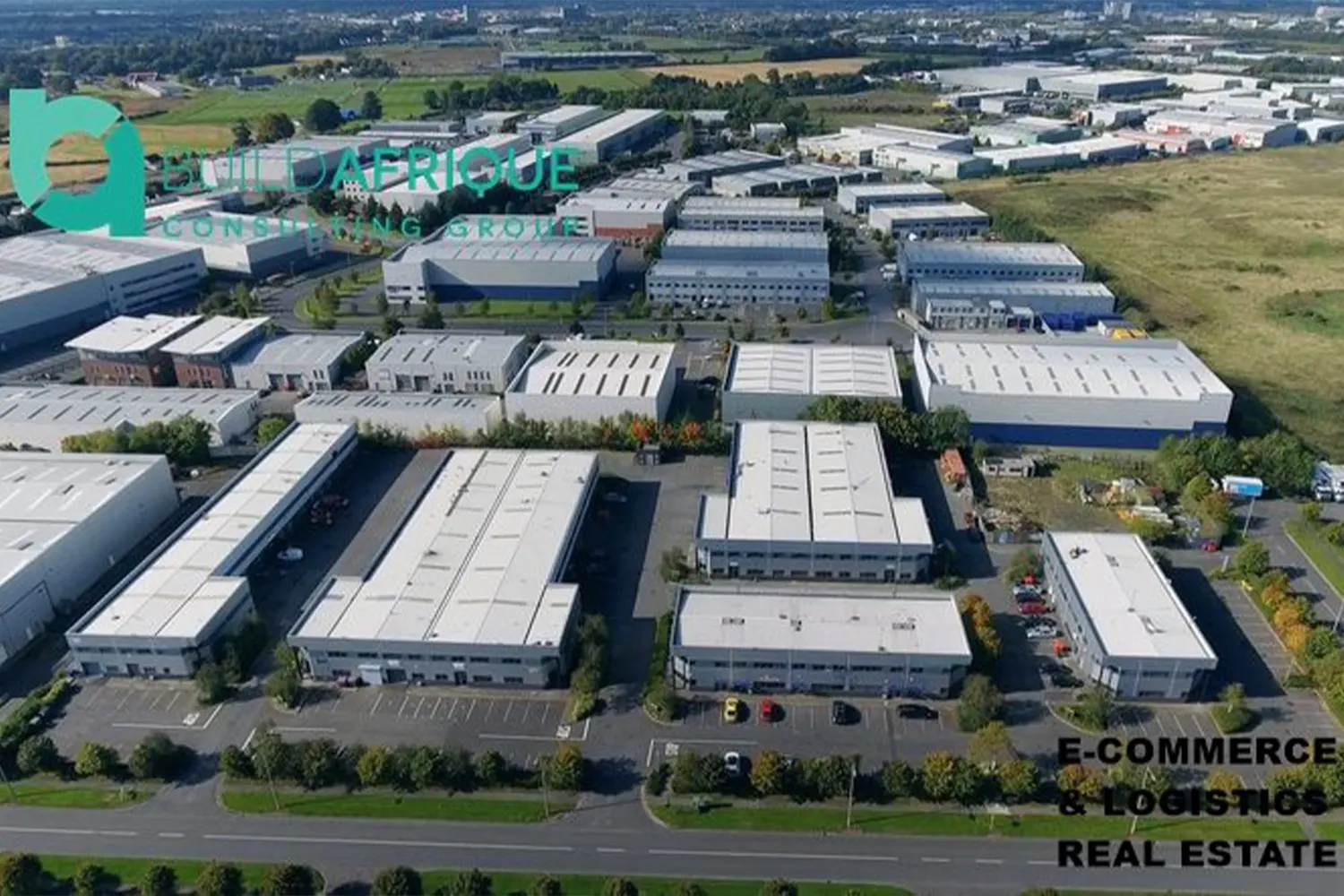Insights
E-Commerce in Real Estate – How Kenyan Investors can take advantage of Online Supply Chain in Logistics Real Estate and available opportunities

While logistics real estate is not the best looking product in architectural design, it is at the moment a highly sought after type of property on account of the quick development in online business and the changing propensities for the present buyers, which are driving the demand for space. There has been a major spike in the advancement of massive distribution & storage centers and a surge in demand by online players and retailers looking for centers located near populations to meet customers needs for quick product delivery. This retail model requires centers that are compatible with online buys, and complete with best-in-class innovations and high ceilings. The development of these facilities and levels of automation persists as major players continue to demand them. The increased use of technology, in particular, is redefining supply chain. This article focuses on e-commerce and its impact on Logistics Real Estate in Kenya.
The most notable themes in e-commerce are that it is still in its early stages and e-fulfillment has now become a visible share of the logistics industry for the past five years. However, the supply chain is only now starting to modernize to keep up with the dramatic changes. Also, there exists a wide variety of e-commerce strategies and a constant evolution effort that is driving high the variety of needs among end users.
The main business characteristics of online order fulfillment include extensive product variety, high inventory levels and an increasing recognition of additional logistics for goods. All these factors contribute to an increased need for the change in the shape and functionality of buildings. Investors may need to identify favored locations adjacent to or within population areas as retailers prioritize faster delivery lines, retailer scale, and reduced transport costs.
In 2014, the e-commerce market in Kenya was worth Ksh 4.3 billion. With a growth rate of 20 percent per annum and more than 50  million users currently, Kenya as one of the countries best placed for digital commerce explosion. Last year, a number of new brands entered the e-commerce market with players such as Masoko by Safaricom launching. The platform uses Amazon as one of its benchmark in online retail business. Jumia and Kilimall are among the leading retailers in Kenya who have a series of off-line locations in major cities and towns where buyers can interact with the companies’ teams and products. By doing so, more services are personalized and customers’ trust is won.
million users currently, Kenya as one of the countries best placed for digital commerce explosion. Last year, a number of new brands entered the e-commerce market with players such as Masoko by Safaricom launching. The platform uses Amazon as one of its benchmark in online retail business. Jumia and Kilimall are among the leading retailers in Kenya who have a series of off-line locations in major cities and towns where buyers can interact with the companies’ teams and products. By doing so, more services are personalized and customers’ trust is won.
While e-commerce cannot shift the type of property demanded within the industry alone, there continues to be a gradual evolution in the types of property that will be most successful in the long-run. Various e-commerce brands have sought for build-to-suit projects for specific building features and site characteristics where some require substantially different construction and layout designs can accommodate a generic second-generation. Key factors for investors to consider when investing in logistics real estate include the abundant use of mezzanine floors, use of high-level security features, high adaptability to automation, space, and proximity to large customer bases. The expansion of major brands and the entry of international brands into the market are key among the demand drivers.
Statistics indicate that due to a variety of products, online businesses require at least 3 times the logistics space as the traditional brick and mortar retail stores. Additionally, this form of trade is increasingly becoming an important demand driver for logistics real estate. For the next few years, it is predicted that it will be characterized by immense growth, variety, fluidity, and high service levels which translate to greater demand for facilities.
This article is written by Buildafrique Consulting Group; a Kenya Real Estate Consultant and Development Solutions provider that offers End-to-End Financial, Development Management, and Investments Solutions in Real Estate, to allow Developer, Investors, and prospective Home Owners manage risks and realize value for their investments in a fast-evolving Real Estate market.
Contact Us today for Solutions to your Challenge in Real Estate Investments and Project Development:
- Email: [email protected]
- Tel: +254 722 474285 / + 254 20 8058493
- Website: www.buildafrique.com
Related
Insights
Construction Investment Projects Feasibility Studies Consultant In Kenya
Buildafrique is a Construction Projects and Real Estate Feasibility Studies Consultant…
Market Research Analysis and Feasibility Studies Company In Kenya
Buildafrique is a Market Research Analysis Company in Kenya and a Feasibility Studies…
Real Estate Development Consultancy Services Company In Kenya.
Buildafrique is a Real Estate Development Consultancy Services Company in Nairobi Kenya…
Investing In Kenya Feasibility Studies Consultants Expert Company
Buildafrique a Feasibility Studies Consultant Company in Nairobi Kenya that offers Market…
Feasibility Study Expert Consultants For Real Estate Projects In Kenya
Buildafrique is a Feasibility Study Expert Consultant in Kenya providing Market Research…
Feasibility Study Expert Consultants in Kenya – Nairobi, Thika, Nakuru, Mombasa, and Kisumu
Buildafrique are Feasibility Study Consultants Company and Market Research Expert in…






